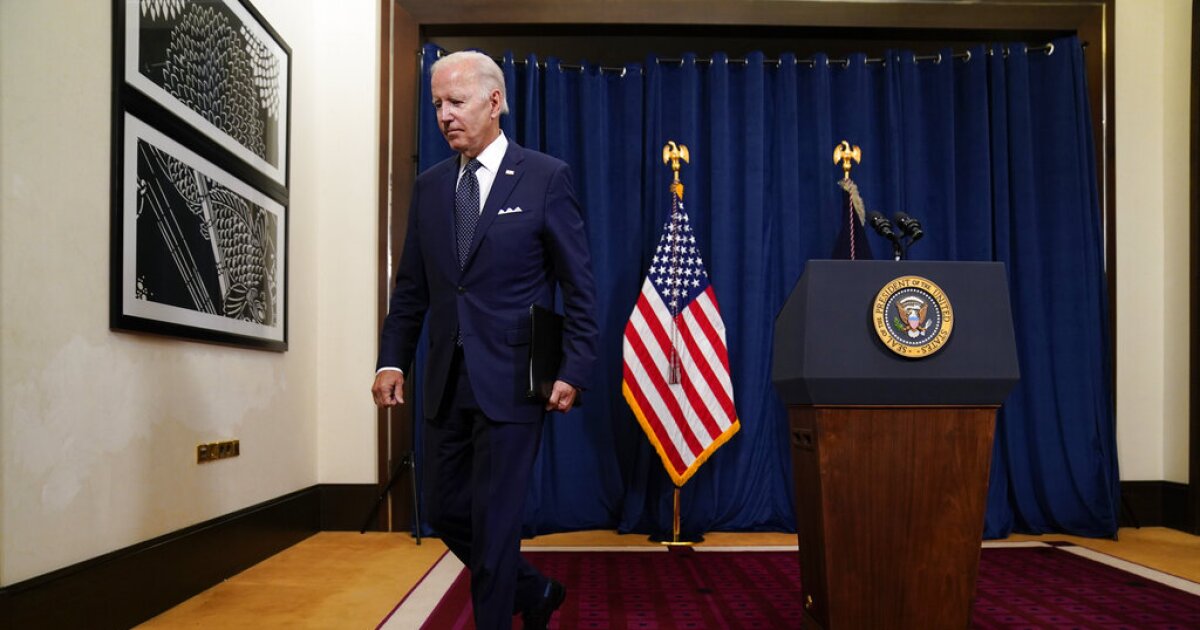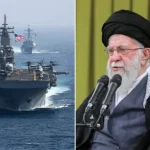

JEDDAH, Saudi Arabia — President Joe Biden capped a four-day swing through the Middle East, insisting that the United States “is not going anywhere,” but as the president returned to Washington, the near-term outcomes of his ambitions were less certain.
After stops in Jerusalem and the West Bank, Biden flew to Jeddah to advance important American interests, he said Saturday, including a more integrated Middle East that would demand less U.S. military involvement. But he maintained that Washington would continue to have a role to play.
“A great deal has changed since I visited this region when I served as vice president,” Biden told a meeting of the Gulf Cooperation Council plus three at the Jeddah Ritz-Carlton, the purpose the president had ascribed to the visit.
Before landing in Saudi Arabia, Biden met with Israeli leaders in Jerusalem, where he sought to ease concerns over Iran while taking steps to help foster diplomatic and economic agreements between Israel and Saudi Arabia aimed at building a new front in regional cooperation.
In his remarks Saturday, Biden distilled a vision of greater “integration” and “interconnection” achieved through partnership, deterrence, and diplomacy. Earlier, a senior administration official previewing Biden’s speech characterized the president’s ambitions as part of “the Biden doctrine.”
BIDEN AND SAUDIS GIVE DUELING ACCOUNTS OF KHASHOGGI MURDER CONVERSATION
“The United States is not going anywhere,” Biden said at the summit, presenting the choice as a strategic imperative needed to box out other foes.
The U.S. “will not walk away and leave a vacuum to be filled by China, Russia, or Iran,” the president vowed earlier.
Before taking office, Biden pledged to recast America’s foreign policy toward Asia and end its “forever” wars.
Officials argued that the objective had not changed. “He is the first president to visit the Middle East since the attacks of 9/11 over 20 years ago, really without the Americans involved in a major ground war or combat missions,” a senior administration official told reporters early Saturday.
Later, Biden said he was “proud” to stand in the region at a time when “the era of land wars in the region, wars involving huge numbers of American forces, is not underway.”
A new framework led “with active principled American leadership” would instead ensure the Middle East countries “can defend themselves against foreign threats,” the president said.
Announcements to transfer two strategic Red Sea islands from Egypt to Saudi Arabia, allow overflights to and from Israel, and develop new wireless technologies were also touted by U.S. and Saudi officials as much-needed progress toward stronger cooperation in the region.
But returning to Washington on Saturday, Biden’s achievements were muted by ambiguity over whether the major gulf energy producers would pump more oil into the global market.
“On energy security, we agree on the need to ensure adequate supplies to meet global needs,” Biden said Saturday before teasing the prospect of a boost by the producers seated all around him.
“I look forward to seeing what’s coming in the — in the coming months,” the president said.
A fact-sheet issued early Saturday morning said the Biden administration expects Saudi Arabia to take “further steps” in the coming weeks to “help stabilize markets considerably.”
Senior Saudi officials were less clear-cut.
Adel al Jubeir, the Saudi minister of state for foreign affairs, responded to the pressure to pump more oil, dismissing as “market psychology” the price swings that have seen American gasoline prices surge above $5 a gallon.
“We are a long-term producer of energy,” al Jubeir said. “If there’s too much supply, we remove it. If there’s not enough supply, we increase it.”
He continued: “We base that on fundamentals — not on speculation, not on hysteria, not on geopolitics.”
The crown prince said Saturday that the kingdom would increase its oil production capacity to 13 million barrels per day but no further, indicating that to do so would risk inflation.
The administration’s newly charged outlook for the Middle East comes at a price, said Justin Logan, a Cato Institute senior fellow, a vision he summed up as “back to the future.”
“The U.S. is returning to the same zombie devotion to Arab dictatorships, this time in the name of countering Iran, a country with trivial offensive military capability,” Logan said. “This arrangement is great for the Arab dictatorships. What it wins for the U.S. is harder to see.”
Biden’s efforts to play down a meeting with Saudi Arabia’s controversial ruler failed to stop the scrutiny over their first exchange, a fist bump that was “Trending in Saudi Arabia” a day later on Twitter.
After meeting with Saudi leaders for three hours Friday night, Biden said he directly rebuked the crown prince over the 2018 killing of journalist Jamal Khashoggi. On the campaign trail, Biden had promised to make the “pariah” kingdom “pay” for the Washington Post columnist’s assassination and, once in office, released an intelligence report that deemed the crown prince responsible.
“I raised it at the top of the meeting, making clear what I thought of it at the time and what I think of it now,” Biden said Friday. “He basically said that he was not personally responsible for it. I indicated that he probably was.”
But al Jubeir relayed a dueling account of the exchange, absent Biden’s fiery rhetoric and with both parties interested in moving forward.
Al Jubeir called the death “a terrible mistake” for which Saudi leadership had taken accountability.
BIDEN HEADS TO THE MIDDLE EAST WITH A WORLD OF TROUBLE AT HIS BACK
“We had an investigation. People were put on trial. They were convicted,” he said. “We have individuals who are paying the price and are now living in jail. And this is what every civilized country does.”
In Jerusalem, the threat posed by an Iranian nuclear weapon loomed over Biden’s meetings with Israeli leaders, concerns the president sought to appease.
Yair Lapid, Israel’s interim prime minister, said only a “credible military threat” would halt Tehran’s nuclear advances. “The only thing that will stop Iran is knowing if they continue to develop their nuclear program, the free world will use force,” Lapid said Thursday.
Biden and Lapid had signed a memorandum committing the two countries to use “all elements of national power” to prevent Iran from acquiring a nuclear weapon.
The American president continued to urge a diplomatic solution but said in an interview with an Israeli television channel that he would be willing to employ force as a “last resort.”
Whether Biden’s words will convince Iran to curtail its nuclear fuel proliferation isn’t clear.
“Tehran will see this hesitancy,” said Jason Brodsky, the policy director at United Against Nuclear Iran. “His focus on seemingly endless diplomacy, without an end date, will remain problematic for U.S. allies and partners in the region.”
Biden “never uttered the words’ military option’ — something President Obama did in 2013,” Brodsky said, the sort of message that would assuage the leaders who “want to see a greater pressure campaign.”
Princess Reema, the Saudi ambassador to the U.S., told reporters late Friday that the Biden administration had offered clarity on its position regarding Iran at the Saudis’ urging and that it intended to continue to pursue diplomacy.
“The problem we have is, is a nuclear Iran that is aggressive, whereas the rest of the world wants to [focus] on enrichment and opportunity, not enrichment of nuclear,” she said. “So we’re definitely talking on different paths.”
CLICK HERE TO READ MORE FROM THE WASHINGTON EXAMINER
Al Jubeir, the Saudi minister of state for foreign affairs, said a deal should far extend the moratorium on Iranian enrichment. “It should be indefinite,” he said, adding that the deal needed a stronger mandate to inspect undeclared nuclear sites and that Washington should not wait forever.
Once the clock runs out, “there will have to be steps taken to make sure that Iran pays a price for its lack of compliance,” al Jubeir said.





